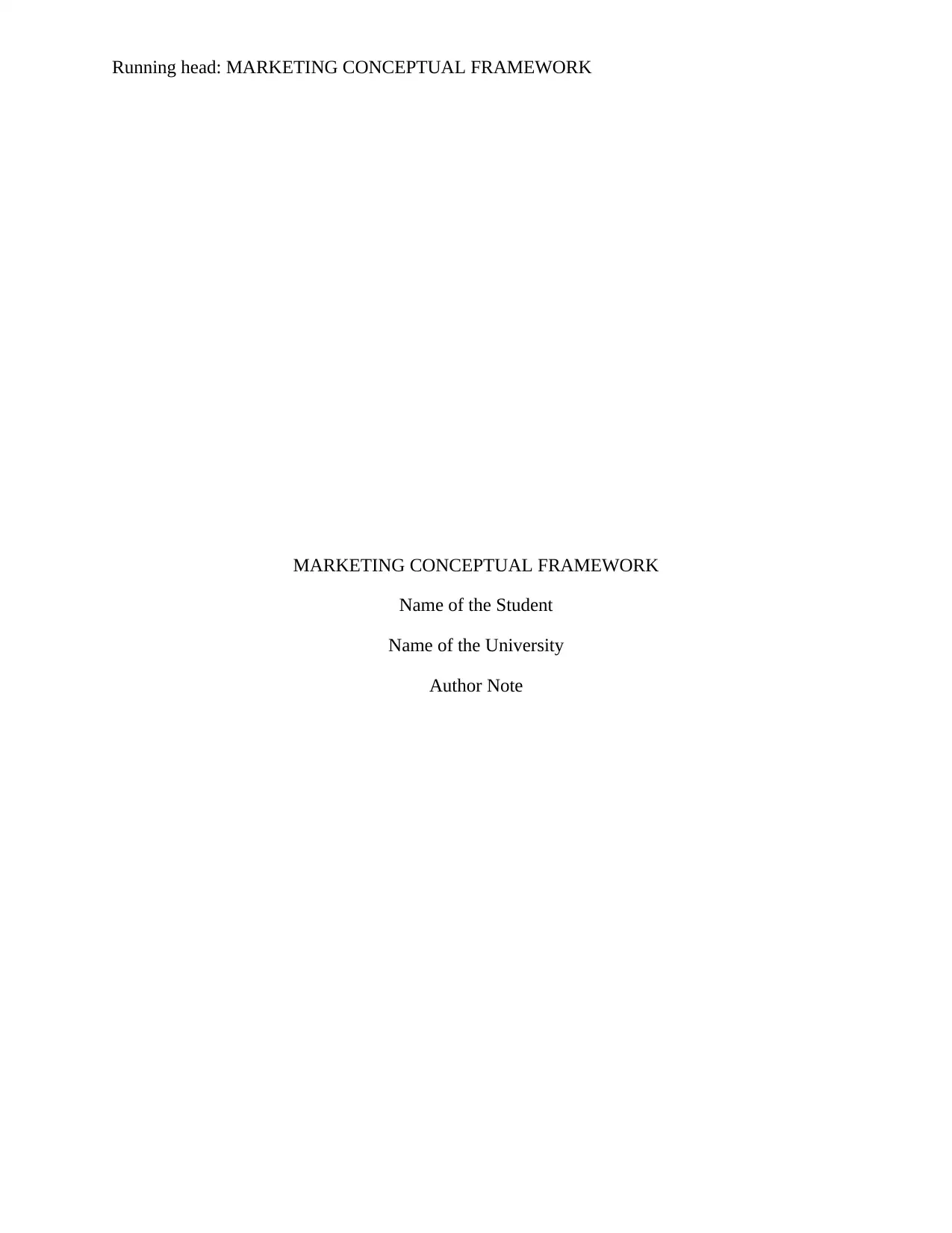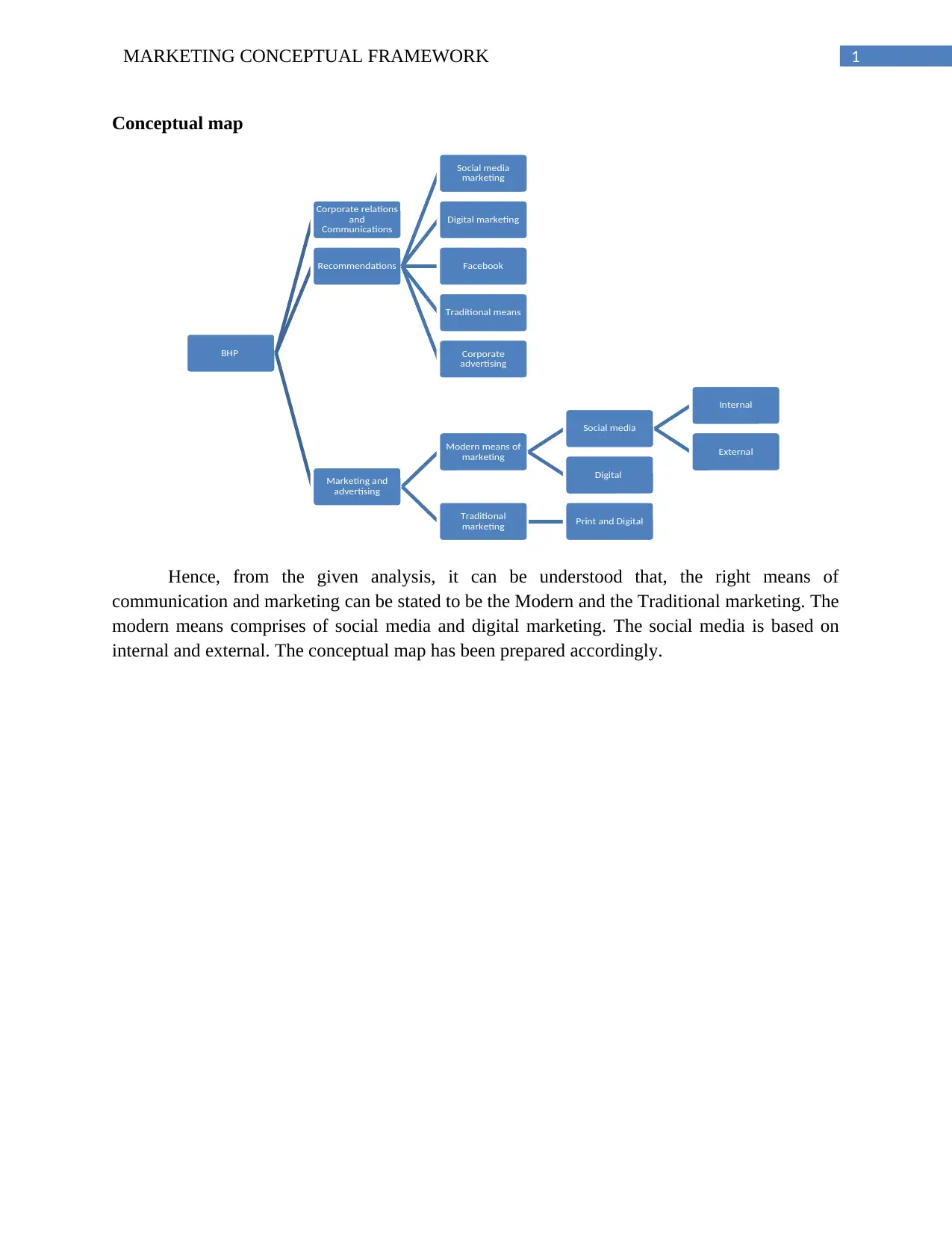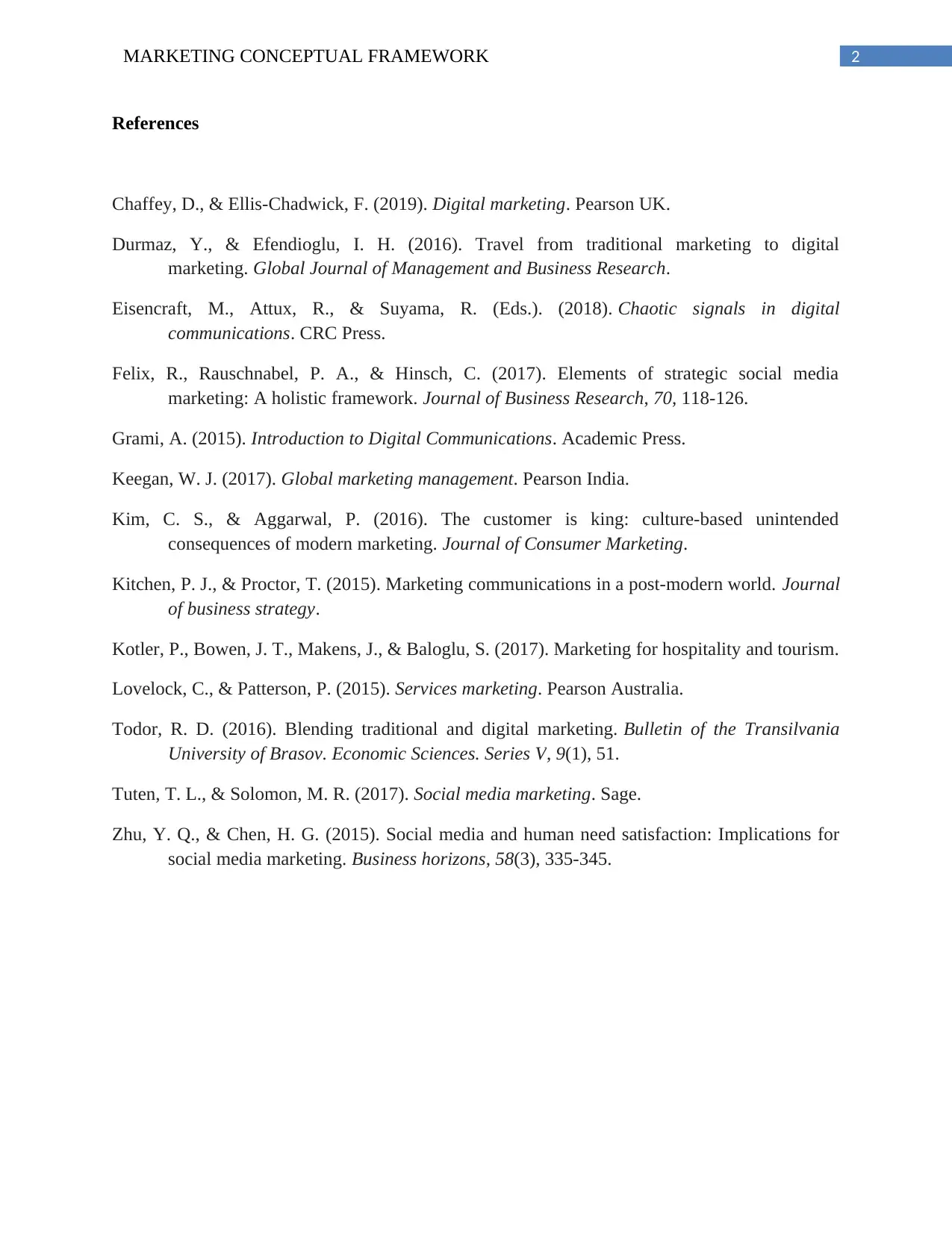Marketing Conceptual Framework Report for Digital Marketing
VerifiedAdded on 2022/08/26
|3
|429
|20
Report
AI Summary
This report provides an overview of a marketing conceptual framework, focusing on the integration of traditional and modern marketing approaches. The analysis emphasizes the importance of communication channels, including social media and digital marketing, in contemporary business strategies. The report delves into the evolution of marketing, highlighting the shift from traditional methods to digital platforms. It examines the effectiveness of various marketing strategies, providing insights into how businesses can leverage both online and offline channels to reach their target audiences. The report also touches upon the influence of cultural factors and consumer behavior in shaping marketing strategies, while referencing relevant academic sources. The conceptual map reflects the interrelation of the modern and traditional marketing and also reflects the importance of social media.
1 out of 3










![[object Object]](/_next/static/media/star-bottom.7253800d.svg)